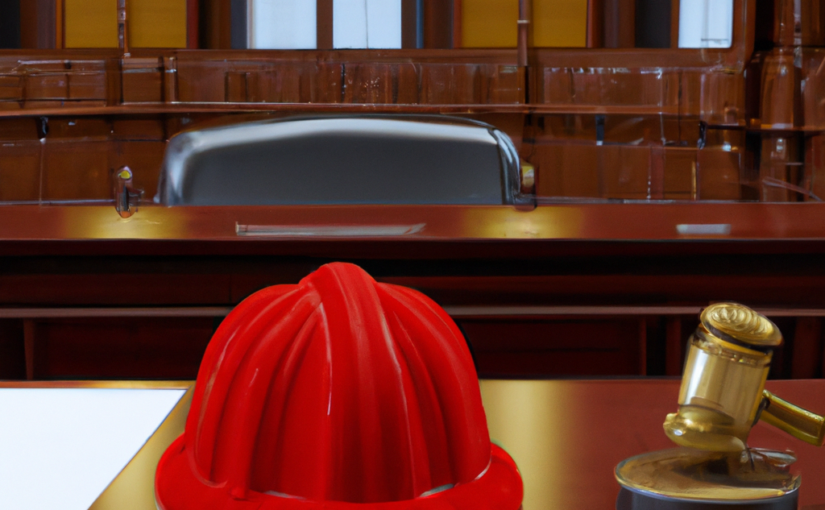Winning workers’ comp appeals and hearings can be challenging, but with the right preparation and understanding of the process, success is achievable. This article will provide a comprehensive overview of the steps to take when appealing a workers’ comp decision, from understanding the basics to submitting evidence and negotiating a resolution.
Win Workers Comp Appeals & Hearings with Ease
Understanding Workers’ Comp
Workers’ Comp is a state-regulated system designed to help workers who have been injured on the job. The goal of the system is to provide compensation for lost wages and medical expenses. It is important to understand the process and know your rights before filing a claim or appealing a decision.
Knowing Your Rights
The first step to appealing a workers’ comp decision is to familiarize yourself with the laws that govern it. Each state has its own set of laws and regulations, so it is important to research the specific rules and regulations in your jurisdiction. Knowing your rights and understanding the process can help you prepare an effective appeal.
Preparing a Case
Once you understand the laws and regulations governing workers’ comp in your state, it is important to start preparing your case. Start by gathering all relevant evidence and documentation that supports your claim. This could include medical records, doctor’s notes, and any witness statements or affidavits that can help support your case.
Documenting Evidence
Once you have gathered the necessary evidence, it is important to document it in detail. This includes organizing the evidence, writing out a timeline of events, and preparing any necessary documents. This will help ensure that your case is presented in a clear and organized way.
The Appeals Hearing Process
The appeals hearing process is the next step in the process. This is where an administrative law judge will review your case and determine whether to uphold or overturn the original decision. It is important to be prepared and to understand the process before attending the hearing.
Selecting a Representative
If you choose to use a representative, it is important to select one that is knowledgeable and experienced in workers’ comp law. A representative can provide valuable guidance and advice on the appeals process, as well as represent you in the hearing itself.
Understanding the Judge’s Role
It is also important to understand the role of the judge in the appeals hearing process. The judge is responsible for reviewing the evidence and making a decision based on the facts presented. The judge may also ask questions and make requests for additional information or documents.
Presenting Your Case
Once in the hearing, it is important to present your case in an organized and professional manner. Begin by introducing yourself and your representative, if you have one. Then, provide a clear and concise overview of the facts of your case and the evidence you have gathered to support it.
Answering Questions
When presenting your case, it is important to be prepared to answer questions from the judge. Be sure to answer each question truthfully and to the best of your ability. Be prepared to provide additional evidence or documentation if requested by the judge.
Submitting Evidence
At the end of the hearing, it is important to submit the documentation and evidence that you have gathered to support your case. This includes any documents or affidavits that you have prepared in advance. Be sure to submit all of the evidence in a timely manner.
Negotiating a Resolution
Once the hearing has concluded, it is important to negotiate a resolution. This could include a settlement, a new ruling, or a combination of both. Be sure to consider all options and keep in mind the goals of the original appeal.
Following Up
Once a resolution has been reached, it is important to follow up. This could include signing any necessary documents or submitting any additional evidence that may be required. It is also important to check in with your representative periodically to ensure that the process is moving forward.
Winning workers’ comp appeals and hearings can be a difficult process, but with the right preparation and understanding of the process, success is achievable. By understanding the basics of workers’ comp and the appeals process, and following the steps outlined in this article, you can increase your chances of success.
#Amazon #AppealsProcess #BackToWorkAfterInjury #Calculators #ClaimsDenied #ConstructionWorkersCompensation #DeathBenefits #Employers #FloridaWorkersCompBenefits #FreeConsult #IndependentContractors #InjuredAtWork #InsuranceForWorkersComp #LawsIn50States #Lawyer #MedicalBenefits #NJLaws #OccupationalInjuries #OregonWorkersCompBenefits #OSHA #PermanentBenefits #RehireAfterInjury #RepetitiveMotionInjuries #Rights #SocialSecurity #TemporaryBenefits #TennesseeWorkersComp #TransportationWorkers #USDepartmentOfLabor #WorkersCompBenefits #WorkersCompClaims #WorkersCompDisabilityClaims #WorkersCompensationLaws #WorkersCompRights #WorkInjuryTerms

